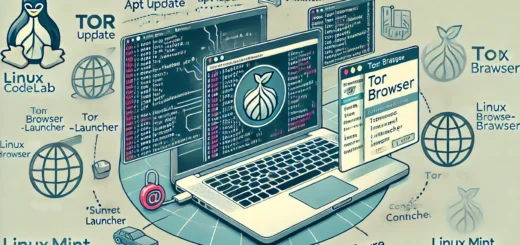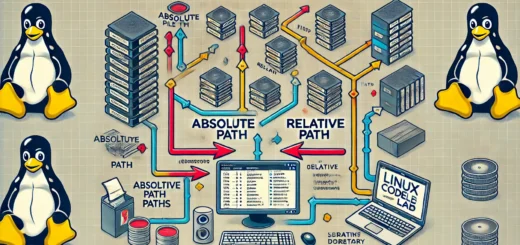15 Cronjobs for Your Ubuntu Server

Cronjobs are essential for automating repetitive tasks on a Unix-based system like Ubuntu. They help maintain the server’s efficiency by performing regular checks, updates, and other critical tasks without manual intervention. In this article, we’ll explore 15 useful cronjobs that can improve your Ubuntu server’s performance and security. Each cronjob will be explained in detail, ensuring that even beginners can implement them with ease.
1. System Updates
Keeping your system updated is crucial for security and performance. Automate this with a cronjob.
0 3 * * * apt-get update && apt-get upgrade -y
This command runs daily at 3 AM, ensuring your system remains up-to-date without manual effort.
2. Automated Backups
Regular backups are essential for data recovery. Automate this process to ensure data safety.
0 2 * * * tar -czf /backup/backup_$(date +%F).tar.gz /var/www/html/
This cronjob creates a compressed backup of your web directory daily at 2 AM, storing it in the /backup/ directory.
3. Disk Space Monitoring
Monitor disk space to prevent your server from running out of storage.
*/30 * * * * df -h | mail -s "Disk Space Report" admin@example.com
This job checks disk space every 30 minutes and emails the report to the administrator.
4. Log Rotation
Prevent log files from consuming too much disk space by automating log rotation.
0 0 * * * /usr/sbin/logrotate /etc/logrotate.conf
This cronjob runs at midnight daily, managing log files according to your logrotate configuration.
5. Database Backup
Automate regular backups of your databases to prevent data loss.
0 1 * * * mysqldump -u root -p'yourpassword' yourdatabase | gzip > /backup/db_backup_$(date +%F).sql.gz
This command creates a compressed backup of your MySQL database daily at 1 AM.
6. Restart Services
Automatically restart services to ensure they’re running smoothly, especially after updates.
0 4 * * 0 systemctl restart apache2
This cronjob restarts the Apache web server every Sunday at 4 AM, ensuring it’s always functioning correctly.
7. Security Updates
Automate the installation of security updates to protect your server from vulnerabilities.
0 4 * * * apt-get install -y unattended-upgrades && unattended-upgrades
This command runs daily at 4 AM, installing critical security updates automatically.
8. Removing Old Backups
Automate the deletion of old backups to save disk space.
0 5 * * * find /backup/ -type f -mtime +7 -delete
This cronjob removes backups older than seven days, running daily at 5 AM.
9. Clearing Cache
Regularly clear your server’s cache to free up memory and improve performance.
0 6 * * * sync; echo 3 > /proc/sys/vm/drop_caches
This command clears the cache daily at 6 AM, helping maintain server performance.
10. Monitoring Server Load
Track server load to prevent overload and take necessary action in advance.
*/10 * * * * uptime | mail -s "Server Load Report" admin@example.com
This cronjob sends an email with the server’s load average every 10 minutes.
11. Removing Temporary Files
Automatically delete temporary files to save disk space and prevent clutter.
0 7 * * * find /tmp -type f -atime +10 -delete
This command deletes temporary files that haven’t been accessed in 10 days, running daily at 7 AM.
12. Synchronizing System Time
Ensure your server’s time is accurate by synchronizing it with an NTP server.
0 8 * * * ntpdate ntp.ubuntu.com
This cronjob runs daily at 8 AM, synchronizing your server’s time with Ubuntu’s NTP server.
13. Updating System Packages
Keep your server packages up-to-date to ensure optimal performance.
0 9 * * 1 apt-get update && apt-get upgrade -y
This command updates your system packages every Monday at 9 AM, ensuring everything is current.
14. Check for Failed Login Attempts
Monitor failed login attempts to detect potential security breaches.
*/15 * * * * grep "Failed password" /var/log/auth.log | mail -s "Failed Login Attempts" admin@example.com
This cronjob checks for failed login attempts every 15 minutes and emails the report to the administrator.
15. Automated System Reboot
Reboot your server automatically during low-traffic hours to clear memory and apply updates.
0 3 * * 7 /sbin/shutdown -r now
This command reboots the server every Sunday at 3 AM, ensuring it remains fresh and updated.
Conclusion
Implementing these 15 cronjobs on your Ubuntu server can significantly improve its performance, security, and reliability. By automating tasks like system updates, backups, and log rotation, you can focus more on other critical aspects of server management. Each cronjob provided is designed to be simple to understand and implement, even for those new to server administration. With regular monitoring and maintenance through these cronjobs, your Ubuntu server will run smoothly and efficiently, minimizing downtime and maximizing uptime.
Remember to tailor these cronjobs to suit your server’s specific needs. For example, adjust the timing to match your server’s activity patterns. Regularly review and update your cronjobs to ensure they continue to meet your server’s requirements as they evolve. In addition, consider implementing additional cronjobs that address other aspects of your server’s management, such as security scans, automatic report generation, and user activity monitoring.
Incorporating these cronjobs into your server’s maintenance routine will not only save you time but also ensure that your server remains secure, efficient, and reliable. Whether you’re managing a single server or multiple servers, automating these tasks with cronjobs is a smart move that pays off in the long run. With this guide, you’re well on your way to mastering cronjobs and taking your server management skills to the next level.
Thank you for reading the article! If you found the information useful, you can donate using the buttons below:
Donate ☕️ with PayPalDonate 💳 with Revolut






















